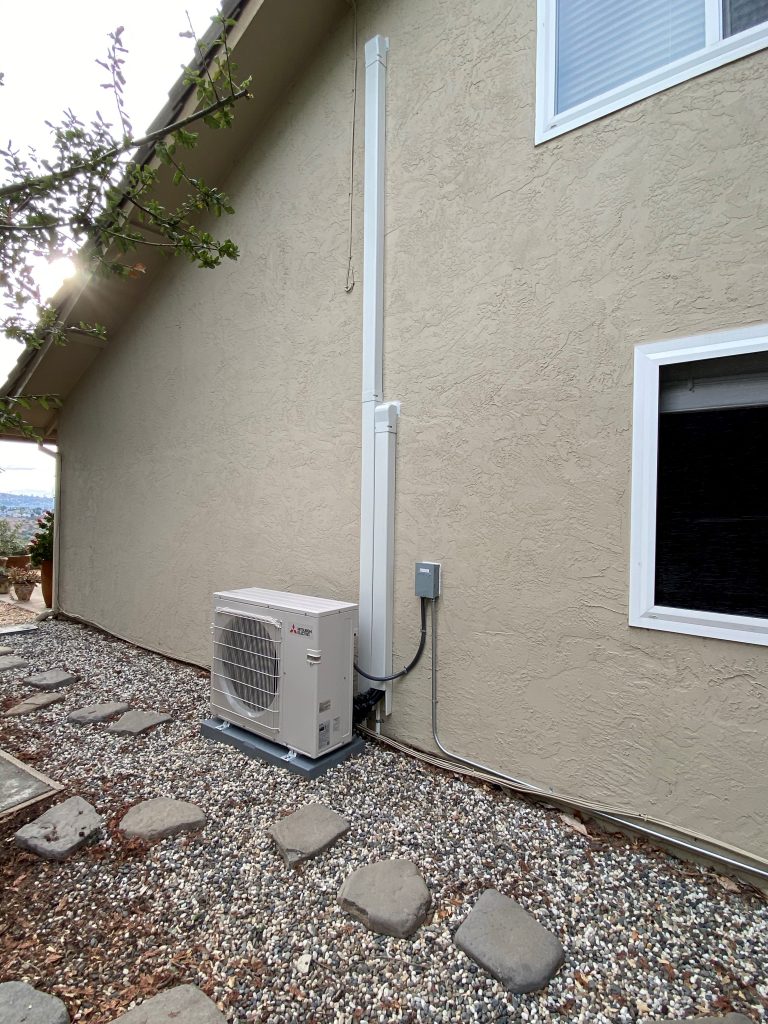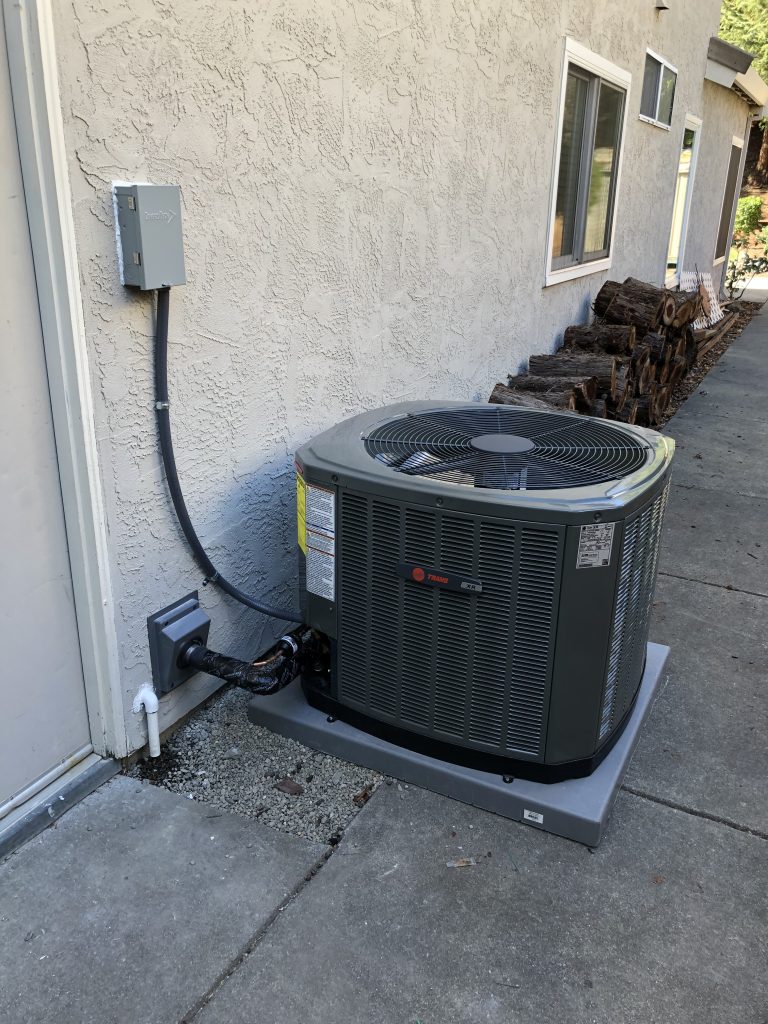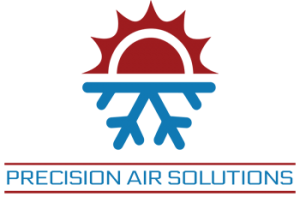- (707)-741-1993
- chris@precisionhvacco.com
- Serving Solano & Surrounding Counties
Choosing the Right HVAC System: A Step-by-Step Guide
Are you tired of feeling too hot in the summer or freezing in the winter? It’s time to find the perfect HVAC system for your needs. In this step-by-step guide, we will walk you through everything you need to know to make the right choice. We’ll start by helping you understand your specific HVAC needs, whether you’re looking for a residential or commercial system. Then, we’ll explore the different types of HVAC systems available, from air conditioning to heating and ventilation.
In this guide, we’ll discuss energy efficiency, including ratings and cost savings. We’ll also cover budgeting, financing options, and the importance of professional consultation. By the end of this guide, you’ll know to make an informed decision for your home or workspace.

Understanding Your HVAC Needs
Assessing your heating and cooling requirements is crucial in understanding your HVAC needs. Factors such as climate, square footage, and usage patterns should be considered. It’s also important to take into account energy efficiency ratings like SEER and AFUE to save on utility bills. Determining the type of HVAC system that best suits your needs, whether it’s central air conditioning, heat pumps, ductless mini-split systems, or natural gas, is another key step.
Additionally, evaluating the size and capacity of the ac unit ensures it can adequately heat or cool your space. Researching reputable HVAC brands, warranty options, and customer reviews will help you make an informed decision. Lastly, getting multiple quotes from HVAC contractors allows you to compare prices and services, helping you choose the right HVAC system for your needs.
Residential vs Commercial HVAC Systems
To understand HVAC systems, it’s crucial to differentiate between residential and commercial setups. Residential systems prioritize comfort, energy efficiency, and noise reduction for homes and smaller spaces. Commercial systems, on the other hand, cater to larger buildings with a focus on cooling, heating, and ventilation at a large scale.
While residential systems are more affordable and easier to install and maintain, commercial systems offer advanced features such as zoning and humidity control for the entire building. The choice between residential and commercial HVAC systems depends on the size, usage, and specific needs of the space.
Assessing Your Individual Requirements
Start by considering the size and layout of your home as this will impact the system’s capacity. Take into account the climate where you live, including temperature fluctuations throughout the year. Additionally, evaluate your budget and energy efficiency goals to ensure the system aligns with your financial and environmental needs.
Assess your specific comfort preferences, such as humidity control and air quality requirements. Lastly, consulting with a professional HVAC technician can provide expert advice tailored to your individual needs, including central heating and condenser options.

Exploring Different Types of HVAC Systems
When it comes to HVAC systems, there are various types to choose from based on your needs. Split systems are the most common, with separate units for heating and cooling. If you want everything in one unit, packaged systems are a great option. Ductless mini-split systems, also known as ductless systems, are ideal for homes without existing ductwork, while geothermal systems utilize the earth’s natural heat for efficient heating and cooling.
Heat pump systems offer both heating and cooling capabilities, while zoned systems allow for customized temperature control in different areas of the building. It’s important to consider your specific requirements when exploring these different HVAC system types.
Air Conditioning Systems
When it comes to choosing the right air conditioner, there are several options to consider. Central air conditioning is a popular choice as it provides even cooling throughout the entire home through air ducts. For those looking to cool individual rooms or areas with limited ductwork, ductless mini-split systems are ideal. Window units are affordable and easy to install, making them suitable for cooling small spaces. Portable air conditioners offer versatility and mobility, making them great for spot cooling. Hybrid systems combine the efficiency of heat pumps with the power of a furnace, ensuring year-round comfort.
With these options, you can find the perfect air conditioning cooling system to suit your specific needs.
Heating Systems
You have several options here. Furnace-based systems use gas combustion, heating oil, or electricity to heat outside air, which is then distributed into the home through ductwork. Heat pump systems, on the other hand, transfer heat between indoors and outdoors using refrigerant, providing both heating and cooling. Radiant heating systems utilize tubes or panels installed in floors, walls, or ceilings to radiate heat into the space. Boiler systems heat water or steam and distribute it through pipes to provide warmth. Lastly, hybrid systems combine two or more heating technologies, such as a furnace and a heat pump, for improved efficiency and comfort in cold climates. Hybrid systems also use a coolant to transfer heat between the indoor and outdoor units.
Ventilation Systems
Ventilation systems are essential for maintaining indoor air quality, controlling moisture levels, and preventing mold. There are various types of ventilation systems available, including natural, mechanical, and hybrid options. Natural ventilation relies on the natural airflow through windows, doors, and vents to circulate fresh air.
On the other hand, mechanical ventilation uses fans or blowers to control airflow, which can be more efficient in regulating indoor air quality. For optimal ventilation and energy efficiency, hybrid ventilation combines both natural and mechanical methods. A humidifier or dehumidifier can also be used in conjunction with ventilation systems to maintain proper humidity levels and improve the intake of fresh air, resulting in a healthier and more comfortable indoor environment.
Combined HVAC Systems
Combined HVAC systems provide both heating and cooling capabilities in one unit, offering efficiency and cost-effectiveness for homeowners with moderate heating and cooling needs. These systems can be either central units or split systems, depending on the home’s layout.
With a combined HVAC system, you can enjoy consistent comfort throughout the year, as it conveniently operates with a single system. When choosing a combined HVAC system, it’s important to consider factors such as size and efficiency ratings to ensure optimal performance. By selecting the right combined HVAC system, you can create a cozy and efficient indoor environment.

Energy Efficiency and HVAC Systems: Why Does It Matter?
Energy efficiency is crucial for HVAC systems as it reduces energy consumption and lowers utility bills. It also helps combat climate change by reducing greenhouse gas emissions, such as carbon dioxide. High-efficiency systems may qualify for government rebates and incentives. Additionally, energy-efficient HVAC systems provide better comfort and indoor air quality while consuming less energy.
Evaluating Efficiency Ratings
Efficiency ratings play a crucial role in assessing the energy consumption and cost-effectiveness of an HVAC system. To maximize energy savings, look for systems with high SEER (Seasonal Energy Efficiency Ratio) ratings. For heating systems, higher AFUE (Annual Fuel Utilization Efficiency) ratings indicate better efficiency. Energy Star-certified HVAC systems meet strict guidelines for energy efficiency and performance. When evaluating efficiency ratings, also consider the long-term savings potential of an energy-efficient HVAC system in reducing utility bills. By prioritizing efficiency, you can ensure optimal energy usage and cost savings, including the proper sizing of duct systems.
The Role of Energy-Efficient Systems in Cost-Savings
Energy-efficient HVAC systems with heat exchangers save costs by reducing energy consumption and utility bills. These advanced systems optimize energy use without compromising comfort, contributing to a more sustainable future by reducing carbon footprints. They may also come with incentives and rebates from utility companies or government programs, making them even more cost-effective.
Investing in an energy-efficient HVAC system can increase home value and attract potential buyers, benefiting air-conditioning engineers specializing in installation and maintenance.
Budgeting and Financial Aspects of HVAC Systems
When it comes to selecting the right HVAC system, budgeting, and financial aspects play a crucial role. Begin by determining your budget for purchasing and installing the system. It’s important to consider the long-term cost savings of energy-efficient models, as they can significantly reduce your energy bills. Research available financing options and incentives for HVAC system upgrades, as these can help offset the initial costs.
Additionally, don’t forget to factor in ongoing maintenance and repair costs, including air filters, when budgeting. Consult with HVAC professionals to get accurate cost estimates for different system options and consider the return on investment and potential energy savings before making your final decision.
Initial Costs vs Long-Term Savings
When it comes to HVAC systems, the initial costs can vary depending on factors such as the type and size of the system. However, it’s important to consider the long-term savings potential as well. Investing in energy-efficient HVAC systems, such as a smart thermostat, can lead to significant savings on utility bills over time.
It’s also crucial to take into account the lifespan of the system and potential maintenance costs when comparing the initial costs. While higher-priced HVAC systems may have a larger upfront cost, they often offer better energy efficiency and lower operating costs in the long run. Conducting a cost-benefit analysis can help determine the best balance between initial costs and long-term savings.
Importance of Professional Consultation in Choosing HVAC Systems
Choosing the right HVAC system for your space can be a complex task. That’s why professional consultation is essential. HVAC professionals have the knowledge and expertise to determine the right size and type of system that meets your specific needs and budget. They can also evaluate the efficiency of your current system, recommend upgrades or replacements for energy savings, and provide guidance on maintenance and regular servicing to prolong its lifespan.
How does a well-matched HVAC system benefit you in the long run?
A properly matched HVAC system brings numerous benefits in the long run. It ensures energy efficiency, resulting in lower utility bills. Additionally, a well-matched system extends the lifespan of your equipment, reducing maintenance costs. Lastly, it helps improve indoor air quality by effectively filtering and purifying the air.
Ensuring Comfort and Optimum Indoor Air Quality
A well-matched HVAC system provides consistent temperature control throughout your home, ensuring maximum comfort for you and your family. By properly sizing and maintaining your HVAC system, you can achieve optimum indoor air quality, reducing allergens and pollutants.
Not only does this promote a healthier living environment, but it also contributes to energy efficiency, resulting in lower utility bills and long-term cost savings. Additionally, a well-matched HVAC system operates quietly, reducing noise levels in your home. By investing in the right HVAC system, you enhance the overall value of your property.
Maintenance Considerations and Lifespan of HVAC Systems
Regular maintenance of HVAC systems ensures optimal performance and extends their lifespan. Well-matched HVAC systems require less frequent repairs and replacements, saving you money in the long run. Proper maintenance and regular inspections help identify potential issues before they become major problems. A well-matched HVAC system improves energy efficiency, reducing your utility bills over time.
The longer lifespan of a well-matched HVAC system means fewer disruptions and inconveniences due to system failures. By prioritizing maintenance and ensuring a well-matched system, you can maximize the longevity and performance of your HVAC system while enjoying cost savings and comfort throughout your home.
Making the Final Decision
Consider the size and layout of your home or business to determine the appropriate HVAC system size. Look for energy-efficient systems to save on utility bills. Research different types of HVAC systems, like central air conditioning, heat pumps, and ductless mini-splits, to find the right fit. Check the reputation and reliability of HVAC brands. Get multiple quotes from contractors to compare prices. Consider additional features like programmable thermostats or air purification systems to enhance performance.
Choosing the right HVAC system is crucial for your comfort and energy efficiency. By understanding your specific needs, exploring different types of systems, considering energy efficiency, and budgeting wisely, you can make an informed decision. It’s important to consult with professionals who can guide you through the process and ensure a well-matched system for your requirements.
A properly matched HVAC system not only provides comfort and optimum indoor air quality but also saves you money in the long run by reducing energy costs. If you need further assistance or have any questions, don’t hesitate to get in touch with us at Precision Air Solutions. We’re here to help you make the best choice for your HVAC needs.
Frequently Asked Questions
When selecting an HVAC system, consider climate, square footage, usage patterns, energy efficiency ratings (SEER for cooling and AFUE for heating), and the size and capacity needed for your space. It’s also important to research reputable brands and get multiple quotes from contractors.
Residential systems focus on comfort, energy efficiency, and noise reduction for homes and smaller spaces. Commercial systems are designed for larger buildings and offer features like zoning and advanced controls to manage heating, cooling, and ventilation on a larger scale.
Cooling options include central air conditioning, ductless mini-split systems, window units, portable air conditioners, and hybrid systems that combine heat pumps with furnaces. Each option has different benefits depending on your space and cooling needs.
Heating options include furnace-based systems (using gas, oil, or electricity), heat pumps (providing both heating and cooling), radiant heating (through floors, walls, or ceilings), and boiler systems (using water or steam). Hybrid systems combine multiple heating technologies for improved efficiency.
Energy efficiency is crucial as it reduces energy consumption, lowers utility bills, and can help combat climate change. Look for systems with high SEER (cooling) and AFUE (heating) ratings. Energy-efficient models may also qualify for rebates and incentives.
